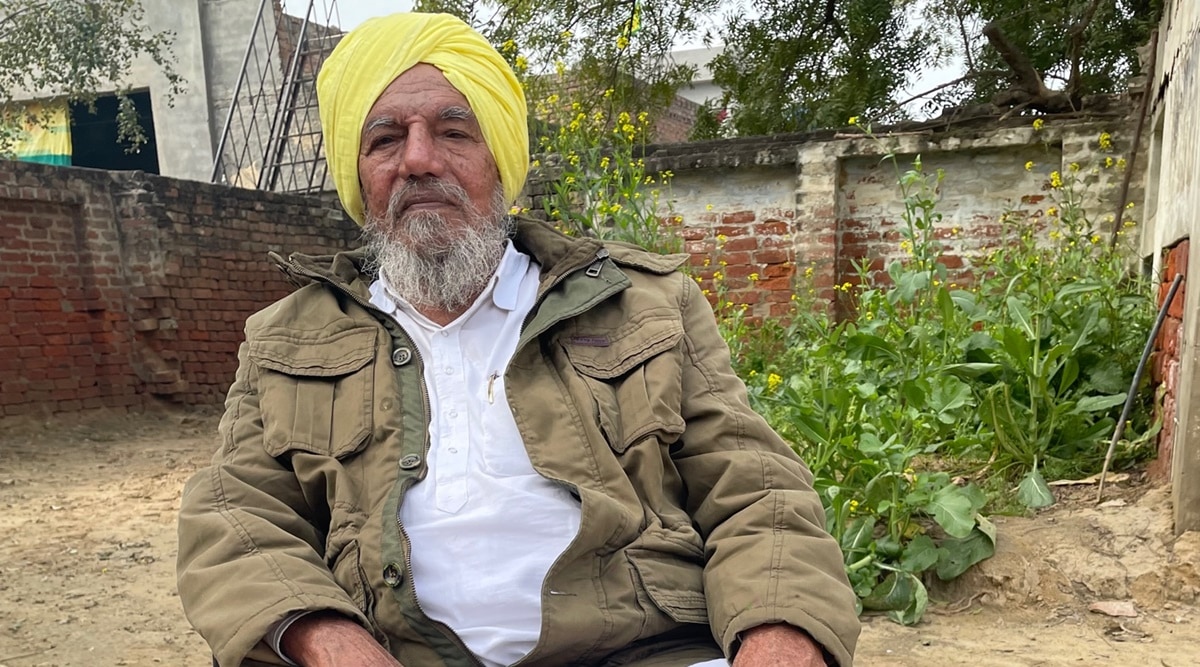 Ugrahan rues that no political party has come up with a solution to the agrarian crisis.
Ugrahan rues that no political party has come up with a solution to the agrarian crisis. “People want a positive change, they want to change the system, but the alternative they are looking for will not bring it about.” Fresh after taking part in one of the longest agrarian agitations of independent India, that’s how Joginder Singh Ugrahan, chief of the largest union of Punjab, sums up the political scene in the state.
These elections, he says, are different not just because of the multiplicity of parties in the fray but also because of the “awareness” created by the agitation. “Now you have a questioning voter. Earlier people didn’t know anything about corporates, the WTO or the World Bank. Now they know, and that is why they are looking for a positive change.’’
Sunning himself in a courtyard with a patch of organic vegetables and a group of office-bearers, Ugrahan lists the questions that people should ask the parties: “How will you give us jobs? How will you remove the growing gap between the rich and poor?”
His questions resonate at the bus stop a few metres from his house, where Manpreet Singh, who has done MSc in geography from Khalsa College, Patiala, says, “Of what value is my education if I don’t get work.” Manpreet wants to be a teacher, a profession already in crisis in the state.
Far away at Rajpura, the growing inequality and joblessness troubles Paramjit Singh, who runs a small tyre puncture shop owner. “So many people have lost their jobs in the pandemic. The poor are struggling to survive.’’
Hardeep Singh, a farmer from Dhaipi village near Bhawanigarh, says he tills two acres he owns but is not looking at contract farming because of the high rentals. “In Malwa the going rate for an acre is as high as Rs 70,000. I hardly get to save anything, so I have stopped taking additional land on lease.”
Ugrahan rues that no political party has come up with a solution to the agrarian crisis. “To just mouth the term Punjab model or say that Punjab is in khatra or Punjab bachao is not enough. Agriculture needs a structural change, but as long as we continue to pander to the WTO, which wants us to do away with subsidies and foodgrains, we will continue to suffer.’’
The farm laws, which were in line with WTO policies, would have finished farmers in the state, he claims. “In 15 years, there would have been no farmers in Punjab. They brought similar laws in Bihar and today they come and work in the fields of farmers here even though they have more land back home.”
The budget, say his office-bearers, is a disappointment. “Last year, the government had earmarked Rs 700 crore for those who don’t burn stubble, this time it has given zero. Even the funds for MGNREGA have been slashed.”
All political parties, says Ugrahan, had hoped that the kisan would unite with them and they would sweep the election. “But now those hopes have been dashed. Farmers are not united. Farming is very big, people have different ideologies.”
Ugrahan says his union did not join electoral politics because “that’s not our job. We are here as a pressure group to bring about a beneficial change.”
The desire for a positive change, he agrees, is driving voters to look away from traditional parties. “They want to vent their anger by moving away from them to a newer party because they have not seen its work yet. But it is also working within the same parameters. They too have undertaken privatisation in Delhi. The structural issues remain.”
His panacea for traditional parties: Bring in new pro-people, pro-worker and pro-farmer policies. “There is a debt of Rs 1 lakh crore on farmers and Rs 6,000 crore on labourers. They should strive to waive off this debt so that farmers can start afresh. Then, they should improve the quality and services of government schools and hospitals. Old habits like making tall promises won’t work any longer.”
Just like economic crisis leads to a social crisis, similarly a boost to jobs will boost the economy, he says. “It’s a virtuous circle of goodness. If people will get work, they will spend more and businessmen will flourish. They will produce more in factories which will need raw material from farms.”
But ask him why the unions, given their ability to mobilise people, can’t set up pockets of model farming, and he shrugs. “It will require a lot of sacrifice. People have gotten used to many little luxuries. Most villages have enough supply of dry twigs and cowdung patties but no one wants to use that fuel even though LPG has become expensive. If the government promises to market organic food, people will adopt it.”
As for the change people are looking for, he says it will come up from within the people.
- The Indian Express website has been rated GREEN for its credibility and trustworthiness by Newsguard, a global service that rates news sources for their journalistic standards.

